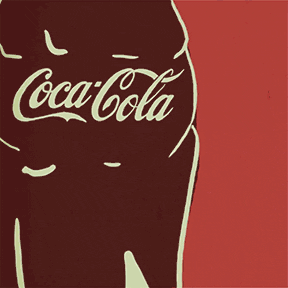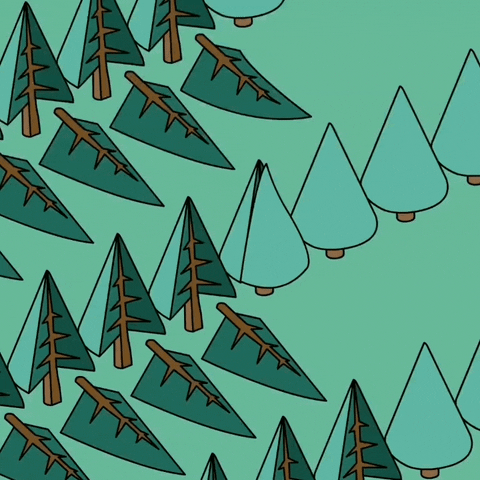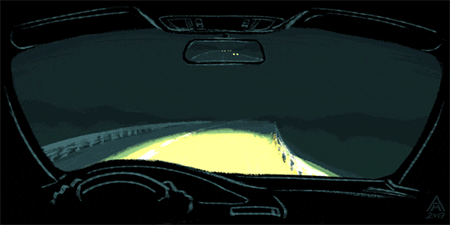memoir
2026
2025
2024
2023
2022
2021
2020
2019
The first Christmas my wife teaches kindergarten, our daughter, Aurora, is one and a half years old. My wife is allowed a three-week winter break. Neither of us has held a job that gives so much time off.
I was a contortionist. I kneeled on the carpeted mall floor, bent at the waist, my arm snaked inside the Big Grab claw machine all the way up to my shoulder, pushing past the metal flap.
A few years earlier, the most 1980s thing to ever occur took place mere feet from where I now kneeled.
At Newgrange on the Winter Solstice, the light only stays in the cavern for seventeen minutes before fading into nothing. The darkness before the light comes is blacker than the insides of your eyelids. It is a prehistoric darkness. A before-time darkness.
The first rule is to listen. This is a game of imagination, so players don’t simply move plastic tokens—no, they create unique characters with personalities and rich histories. The man explaining this to me on New Year’s Eve, for instance, is an academic Wizard.
There’s a rabbit on my balcony. I call him Elvis. Not after the singer but after the Canadian figure skater with the mullet. The rabbit has a mullet too, though it’s gray instead of soot-black like the figure skater’s. My father found Elvis in the woods with a broken leg. The rabbit, not the figure skater.
KL commented on read and please fix my writing:
I was seventeen, sixteen, fourteen, ten years old. That time when I was sitting in my room, watching TV, playing a video game, working on homework, and I heard your voice calling my name.
It’s a nosebleed heat in mid-February. When it’s warm like this I circle around the block, find shell casings by gutters. My dad’s dad sold guns on this street. Dragged his leg and a bottle behind him. He died on Valentine’s Day—kidney limp and heart beating.
Pedro (his name isn’t really Pedro but to me he is Pedro, like so many of them are, like we all are, my Pedro now) is outside the apartment. Somewhere between the hours of 11 p.m. and 2 a.m. Friday going into Saturday. There is little importance as to weather conditions, season, environment. I have known him through it all: rain or shine, dorm rooms and bathrooms, winter and summer, single and not single.
Here, in the central San Joaquin Valley of California, my father grows raisins. He cuts an imposing figure: six-feet tall with thin limbs and thick glasses that magnify the size and power of his eyes. He does everything—can do anything—quickly and well.
As you walk through the automatic doors, keep this in mind: supermarkets—and now all other things—are arranged wrong. Heavy items like sacks of rice, number-ten cans of tomatoes, and five-liter bottles of your brother’s death are all on aisle 7—after bananas, after white bread, after eggs. Leave a hollow in your cart for the heavy stuff.
1. Missy and I sit on the floor, two young women with bruises over our arms. Men call her Baywatch after the TV show because she is pretty with blonde hair. She’s not voluptuous like Pam Anderson. She’s under one-hundred pounds with skin like glass but she doesn’t break not even when the cocaine makes her seize. A pain between her legs—a memory of motion…
2018
You don’t remember his name, his appearance, anything about him. You remember only the glistening incision in front of his freshly-shaven hairline, snaking back along the symmetry of his skull and ending near the onset of the spinal column. Later that night, you take your index finger to the center of your own forehead and run it clockwise to the cervical vertebrae. You pretend. Because it could have been you.
It was sometime after Easter, when spring grows heavier, the earth a bloated womb. My father, one of spring’s miscarriages. I drove home from school to see him. The couch in the living room was gone—that tattered, sunken thing permeated with my father’s smells and the little mountain range of indentations his body carved the way we mold to fit against a lover. My mother and father didn’t sleep separately out of contempt.
In between hotel sheets, stiff and crunchy under me, and the impossible blackness of a room without the faint glow of moonlight, I lay, naked. My eyes are open, but useless, and in my blindness I feel silly and exposed, despite the shelter our thick hotel curtains provide. I stare at the ceiling, willing it to answer the voice in my head, the What are you doing?
It wasn’t at a crossroads where Robert Johnson sold his soul to be a great blues musician, and it wasn’t like the virtuoso violinist Niccolò Paganini who supposedly sold his soul to the devil to be the best violinist to have walked the earth. It was actually by accident when I was buying a violin for the first time.
I don’t like to answer the telephone.
“Hi Mom. It’s Cary.”
The familiar voice jolts me back to a nightmare. The voice of my first-born child. My precious son. Love and terror.
You can see through my dress. It clings to me in pieces and reveals just enough. I can move in this dress, walk down streets, perch on subway benches, sit cross-legged in sand. Because of this dress a Coney Island man plowed into a street sign, a truck driver howled from the other side of the Henry Hudson Parkway, prick in hand, and someone tossed a bucket of water on me from a second story window to see my underthings.
I remember you in particular in the cold. In the snow. Though I seem to think the last time that we spoke it was raining. I recall rivulets running down the windows of your car. So much motion outside as we were so still inside. Even our mouths stiff and unresponsive. Mostly, though, you are the late fall to me, that soft sort of snow.
Gibbons are monogamous and bond in pairs. Orangutans are solitary and, for the most part, mate coercively. Males with large cheek pads called flanges are able to attract willing, in-heat females with long mating calls. Unflanged males must search for partners.
A banjo player I met in that place told me once he was the seventh son of a seventh son. I never told him his name was the same as my brother’s middle name, the same as my mother’s first brother’s: a small boy, overexposed in the photographs left in my grandparents’ house. Influenza closed the small boy’s throat a few months before my mother’s seventh birthday. She heard it happen through the bedroom wall.
I remember a long night in Africa when I called you during the midnight shift before you went to class. I could see the night sky through the window and it was the first time I noticed the Milky Way and felt the distance between us like the galaxy feels the gravity of the black hole at its center. I feared a love with that magnitude and believed I wasn’t worth waiting three years for, so I broke up with you under the weight of those same stars.
But when I imagine my mother’s mother, all I can see is her tying an apron around her waist, and there is a dark smudge in the middle, like how some old White crowds stood watching the swinging knot around someone’s neck that my mother’s mother knew. And yet still, she soaked her hands—wrinkled and wet—the brined black leather in the blinking soapsuds, washing china, and other plates, from other places she would never go.
2017
The shuttle hurtles toward the sky, impossibly big, with impossible power, and we hurtle with it. There only sound in the universe is the crackle of voices from the onboard intercom and Mission Control. We lean toward the television. This is it, after all. This is where we are going. We are all going to escape this small town. We are all going to be astronauts.
The movie began like all Disney movies do. A privileged yet bleak childhood punctuated by loss. Thea doesn’t have any issues with Disney; she’s quite moved by a legacy of female helplessness and sacrifice.
After 73 days of 140 miles of mind-numbing asphalt lined by pines and oaks and cedars, ink and paper and computer screens deciding if I am rich or poor or worthy of Uncle Sam’s largesse, over two months of waiting to be told if my kids can eat or get their teeth cleaned or get paranoia-inducing vaccines, and answering stupid questions …
I once dated a woman whose parents had, when she was a child, bought her a Stradivarius violin. My knowledge of those violins, back then, was minimal—what they cost, their rarity—but I did know they were luxury items, that she’d been musically spoiled and would laugh playing any other instrument. They would, of course, all be inferior.
I was freezing. I’d refused to trade my black leather / jacket for a coat that would cover my pregnant belly. / The gusts from Lake Erie were bitter. You held / out a candle, to warm my hands by. That was the December / Mark David Chapman shot John Lennon.
Here is the good uncle, everyone’s favorite uncle, studious former all-star big man on campus, the kind of guy who picks up leaves one at a time until the lawn is a green carpet, uninterrupted by flecks of dead matter. Now the good uncle is telling a joke or passing around barbecue-flavored potato chips, but later he will be in front of the television set, forehead wrinkled in concentration while he tells children who aren’t his own to be quiet …
You keep trying to take advantage of a technicality—you doubt your own modesty (something valid, unreturnable, righteous, delayed). Sharp words, a quick apology—infringement you notice, adapt easily, without complaint. You are a good sport who’s asked to play, to join.
You knew there was something else, you knew there was something else, & so you waited…until I confessed that he had pressured me into sending a nude photo & then you shattered each of my DVDs in your hands, twisting, snapping, one at a time, in front of me, & kept going until everything I cared about was in pieces on the floor between us & then: you smiled.
When I think of the radio man now, I think of Neil Young first: how his eyes lit up when we appraised the genius of Young’s melodies—nostalgia and grunge mixed with a dark abdomen of story.
When I lived in Lubbock, Texas in my twenties, I used to wake to knocks on my bedroom door in the middle of the night. The knocks angry, insistent, three, sometimes four. Knock knock knock knock. I’d jerk awake, stare at the thin door made visible by the streetlight outside my window, my breath quick.
If someone said they were going to kill themselves, we kept them on the phone until they promised not to or until the police came or until they actually did kill themselves, which they never did. I made $13 an hour. We sat in a small white room. It was hard to keep track of the days and then it was hard to keep track of the months.
In August 2016, I left Seattle. My home of ten years, the Pacific ocean, the place where I made countless friends and met my wife and taught myself how to write and became a father and established the beginnings of an artistic career and truly, finally, maybe figured out who the fuck I am.
The Virgin Mary is peeking out from behind the edge of the bookshelf, praying for rescue, Anne of Green Gables looming large at her back. I’m six or seven, small enough to kneel beside the ceramic nativity on the shelf of cupboards that spans the length of the room and props up shelves of books. It is Christmastime, and Mary has become the heroine of my small hands.
I came out in the only way I knew how, which is an Irish Catholic way of saying that I lied: I told her I was ‘newly’ attracted to a boy in my high school freshman class, but I insisted I was still straight. Insisted. I treated this same-sex attraction like a fresh, anomalous thing, even though this desire was the norm for me, constant and moving in all directions.
We were fifteen. We’d snuck into a place we weren’t allowed to be. We’d gone inside my house, I don’t remember why, and the lights were out, my parents not at home. The only light came slanted through the windows. Chris played the piano in the living room while Paul roamed the upstairs hall. What song did he play?
It’s my job to call on Christmas. Mine to call on Thanksgiving. Valentine’s day is optional, but I still call because I know it’s her favorite. On my birthday, it is her responsibility to call. On her birthday, it’s mine. That’s how it has always worked. I suppose it would be easier if we lived closer, but we don’t.
2016
In his wheelchair, laborious and alone, he fought his way out there - wheelchair, ugly feeble word, embarrassing. So we called it The Chair like capital punishment, that twist always of bitter morbidity as he decayed and decayed inside, as he palsied and loosened like someone cursed to unravel back towards infanthood.
When the first ship appears, it is a skyscraper eased down, steel oranged by rust and sunset. A low burn on the horizon. Not yet time for stars. The water between the two Great Lakes still, marinating. You must know this before I go on.
After my grandfather’s memorial service in Arizona, in the high-ceilinged, dark-stoned, weighty kitchen of a vacation rental, my nurse practitioner cousin cuts a cyst three times the size of a bb from the top right portion of my head. She injects lidocaine through a twenty-five-gauge needle attached to a syringe into my scalp to dull the pain of the excision. A part of me wishes she wouldn’t.
Neoclassic bones crumble. The 18th Century is propped by scaffolding along South Harbour yet visible under sheets of plastic. I’m struck by the stench of feces outside Hotel Kämp. Cracking pipes? I squint my vulture eyes: tourists swarm the Esplanadi for another free concert.
My mother’s first pregnancy was a turbulent one. Her body waged war on the clump of cells that was determined to be me. Though I eventually emerged unscathed, the umbilical cord was wrapped so tightly around my neck that I was nearly snuffed out before the doctors could even pronounce me female.
When I was young I couldn’t tolerate mistakes. I would get upset over errors, over any wrong answer. I didn’t know the difference between good and right. My teacher in Japan was concerned enough to ask my parents how strict they were at home. Do you allow mistakes, he asked. Of course, they answered.
First, forget the put-on bravery, the way you spoke of it freely, telling anyone who cared to listen and then, once you tired them out, telling those didn't care. How afterwards you bought a shirt with I HAD AN ABORTION in black block letters across the chest and wore it just to see who you could turn uneasy.
I've spent a lot of time ten stories up. Nine hours a day, five days a week, for the past two and a half years. I work up here. I sit by the window. My company is a small marketing agency that sells hammocks and beard oil and, sometimes, US presidential candidates. There are snacks in the cupboards. Free beer on tap. One of the first things we noticed when we moved in was that the windows opened.
First, forget your mother. Forget the childhood breakfasts of soft-boiled eggs pooled like yellow mucus in the bottom of a cracked coffee cup. Forget that you had to eat it all, even the undercooked white that dangled from your spoon like a rope of snot.
“But then, it wouldn’t be you,” he finishes, his voice softer. His eyes are no longer on me, but looking out ahead of him, as if he’s seeing her, the me that isn’t me. And I wonder what I, she, looks like.
There are voices outside the window, real ones this time, and close by. I shrink in the dark room, contract until there’s nothing left of me but the sheen of an eye peering through the smoke-yellowed blinds. Brownish street light steals through the slats, striping the floor around me like bars.
Imparting white hairs, on Grandmother’s cheek, twenty years ago. And what’s more, a tiny coalition of light hairs—faint hairs—fragile hairs—mere shadows of hairs— gracing my lips and temples now. I suggest to you: me before a mirror, fingering their most fine and present texture. I say: I know, I insist, I attest. I have inherited. The hairs are my own.
My father is standing over the toilet in a rage. He’s in the bathroom at the top of the stairs, holding a wet plunger, watching the bowl swirl empty then slowly refill. Between flushes and plunges, water drips onto the discolored aubergine cut-pile nylon that carpets every inch of our suburban house, including all four bathrooms.
On a recent visit to my mother’s, I sprawled in T-shirt and shorts in the front yard of her house, relishing the California sunshine. As I angled my head for the best late afternoon rays, my mother, sitting in the shade behind me, disturbed the heavy air and our customary silence with a Eureka sort of shriek. “You sure have a lot of gray hair!”
During my first morning therapy session in the psych ward, about sixteen of us sat around a kids’ table that only came up to my knees. “Everyone takes a turn,” Rick, the psychologist, told us. “Tell us how you’re feeling this morning—and you can’t say ‘tired.’”
Mother never told me what would happen with my body. My period started when I was eleven, when we lived in Guadalajara. I thought it was my fault. She found the bloodied clothes wadded in the back of the dresser, sighed and said, go ask your sister where the supplies are.
It won’t be home any longer, that tub of iron and porcelain, perched on bricks, and the grey blue stone that we laid down ourselves with paste and effort and hope. The children bathe with lavender and soap, boats too, plastic cups, little men with overalls, a tiny brush for their fingers I bought at a market in a city I don’t remember.
I arrive on the island on November 15, 2012, returning to a place I have never set foot. My first stop in Havana is Plaza de la Revolución. Steely outlines of Che Guevara’s and Camilo Cienfuegos’ facades loom.
I see us standing on a street corner, bright sun, hidden in plain sight, and I see my hand reach for his—and the hesitation before he allows me to turn his palm upward—and right there, where anyone might see, I draw an X upon him.
Wal-Mart on a Sunday night is swollen and hungry and loud, but let us ignore the sadness so we don’t break and get toed under the bottom shelf, or chucked in a cart and rolled to clearance to soften like pumpkins in November. Forgive the cheap imports and foodstuff and low wages and death of independent business. Please. We can’t take it.
Every couple has a definitive how-and-where-we-met narrative. Here’s the one my husband and I tell at dinner parties:
I was a counselor on a teen tour to Israel. He was the manager. He hired me. We fell in love in Israel that summer, the summer of 2000, the summer just before the second intifada.
When is a mother not a mother?
When she’s dead.
I told that wrong: When is a dead mother not a dead mother?
On Mexican food
On Ocean’s 11 and the West Wing
On government
We hate rhetoric short enough to fit on a sign
I take a picture of your coffee cup after you leave. Then I lick the spoon you used, still resting in the cup, still tasting of the warm, bitter liquid. But not of you, of course.
The first time I saw my dad hit someone, the movement was too fast and too slow at the same time. One moment, he was walking, and the next there was blood all over the hallway from the other man’s nose. The blood shone against the white tile floor. I stood there forever while it spread, and the sound of pain the other man made struggled through the thickened air to catch up to me.
In most cases, “My house burned down” is a get out of jail free card. For instance, “I’m sorry officer, I can’t find my ID, my car, I mean my house, burned down. Let me riffle through all my worldly possessions in the back seat to find it for you.” And subsequently, “Sorry I’m late, boss, I got pulled over on my way. Also, my house burned down.”
There is an overlooked advantage to writing memoir. Unlike the medium of a diary, the true intent of the memoir is not to conduct a literary magic act or preserve a memory like a wooly mammoth trapped in the unforgiving black mouth of a tar pit.
April’s lips are chapped. They’re rough and scrape against mine, and the taste of nicotine fills my mouth. Her fingers are wrapping around the tendrils of my mullet. And she pulls my hair a lot harder than I expected. It’s my first kiss. Well, the first one I count, anyway.
Zoear16: Hi, you there?
My Squad1997: We’re always here.Come ovverrr for a girl’s party!
Auto response from Zoear16: BRB, hanging out with my BFFs!
I arrived at the City Museum in St. Louis with a vague memory of a friend’s summary of her experience there. “It’s crazy,” she had said. “An architectural marvel,” she called it.
“God damnit, Jesse!” screamed my history teacher, as he kicked over a front-row desk that had remained—like all the front-row desks—unoccupied. His name was Brad Beckett. I always liked to imagine that he was a relative of Samuel Beckett, the playwright, but there were lots of Becketts in New England, and really I had no reason to have made the connection.
In the beginning: sound. Metal striking metal.
In the beginning: sensation. The torque of a rollercoaster. And then my car stops and I awake fully to the white billows of the air bag. Pain from my side where the seat belt has cracked my ribs. Afterwards, I wear green black and purple in a beauty-queen sash of a bruise.
1. Once, I had a tiny pink lizard named Ike who consumed his freshly shed skin before it was entirely separate from his body. The act of shedding and eating was repulsive and entrancing; I peered through the glass to watch on the wooden stool I had swiped from the kitchen. The fluidity of the motion gave the illusion the tiny creature was grinning as he consumed his own flesh.
2015
I meet Angel by the metal payphone outside 7-11. I stroll outside with my breakfast, a giant-sized blueberry Slurpee. It is a sugared oasis from the cod I slice and fry and serve and, after my shift ends, the cod I steal from the food court.
ATV stands for all-terrain vehicle stands for Tilley Baker circa 2007 stands for eighteen years old stands for captain of the soccer team stands for seat straddled by the operator stands for low pressure tires stands for around 6:30 at night stands for dusk stands for off road escape stands for farm access road stands for chain across a farm access road …
The graveyard is full of music and movies, a field of dead grass scattered with headstones made from vinyl sleeves and DVD cases, but this is the first short story you’ve put in the ground. The first book to mark a tomb.
The conversation turns to cockroaches, which Francine has a mortal fear of. When earlier she walked into the kitchen of the bar Anna and Yeorgos had just signed a lease on, she let out an almighty shriek. Dead cockroaches everywhere. The place had sat empty for two years, so no wonder. There were more in the bathrooms.
A little purple wildflower that waits for me beneath the helmet on his motorcycle seat the first time he picks me up. The ride we catch later back to town with a man who calls himself Little Bear after we lose the keys to the motorcycle. The smell of fake pine and musty cigarettes that emanates from the upholstery while I am pressed between men I hardly know.
We're in the dining room, sitting around a big wooden table with heavy legs, meant for a family to gather around it and break bread. We are a family, I think, in some ways. There are six of us, seven, eight, and the room is filled with our voices. I’m sitting on his knee. He rests his heavy head on my shoulder and talks around me.
At what point in fame-dom is it no longer acceptable to go to the Cheesecake Factory for a fancy dinner? This is not a reference to kink culture. By fame-dom (second syllable pro-nounced like dumb), I mean how famous can you be and still deem a chain restaurant upscale. And by famous, I don’t just mean actresses and musicians. I mean CEO’s of local nonprofits, cat whisperers, professors, and public servants, from street sweeper to Justice Antonin Scalia.
It was when the Division of Family Services took us away from our mother that I became my mother and a thousand mothers, all lined up against the wall to be shot in the head.
I see him every morning now. Who? you ask. Well no one you would know. Just a boy who turns to smile at me before he stretches taut his bow, ready to kill the lion in the shadows. The lion that would kill me if the boy didn’t kill him first, the only lion in all existence. The rest are mere mirages.
It was cold in the way that only Iceland can be cold. The houses in Iceland aren’t made of wood. It’s a volcanic island and therefore all the buildings need to be built to a certain code, to withstand, I guess, volcanos and other seismic activity. So the houses are stone and concrete and it is cold ten months out of the year.
2014
We began, by fifth grade, to establish a pecking order.
I was gullible—they convinced me once to shave my legs and arms. I dragged my mother’s pink razor from ankle to knee, then wrist to elbow. It was slow going, because each hairless furrow required careful examination.
A short film essay by John Bresland, with a synopsis and review by Michael J. Soloway.
“Once upon a time I drove a very fast car,” are John Bresland’s first words of narration in his short video essay, “The Seinfeld Analog.” From this innocent opening to innocence shattered.
2012–2013
A delivery man came today with a cardboard box. On the outside it says "Handle With Care," "Fragile,” "Do Not Drop." The packing slip says 1 lb. I've never opened a package so carefully. Inside is a shiny wooden box with Azul engraved in gold. My best friend, my 12 year old dog-- my greatest bond-- in a box.
I could have been forty-something myself and it would have all seemed normal. This is her new normal and so it is mine. She is practicing for a contest and I want to hide. The brown suede sectional in the living room is disassembled and stacked in a corner, like puzzle pieces fresh from the box. My sister sits on its cushions and watches. I am to be part of the act.
The men I dated when I was 19 and 20 have no names. They used to have faces, but I’m losing them. I can no longer remember lips, hands, chests. I have no pictures, no court-admissible evidence they existed. These men have blurred into one foggy presence, one whose dating routine was shared across the board.
Maria, the black-eyed, reticent waitress who’d managed to keep herself alienated from the rest of the staff at my restaurant months after she started working there, liked her nails done. Each month she shelled out what I thought to be an inordinate chunk of her hard-earned tips to a lady who poured liquid acrylic over Maria’s fingertips before shaping, buffing, and polishing them into a flawless French manicure.
My mother created the world.
She controlled her world with rules and schedules, the litany of demands I was born to heed. Rules and schedules reigned over even the most intimate and involuntary of bodily functions, from how a child must train herself to turn carefully in her sleep to avoid messing up the bedcovers, to how she must avoid sneezing or coughing in public lest people think her mother is neglectful of her health, to her bathroom habits.
S and I walk along the beach. Something feels different.
***
The night before I rode my bike to his house, uninvited. I pedaled thirty miles one way, hoping to meet his mother who was spending the weekend with him. I figured I’d just drop by, make a greeting, and all would be fine.
You wake up on the toilet staring at your dick. You’re naked but you think that’s not so bad because your roommate usually stays at his girlfriend’s house and, even if he’s not there tonight, he drinks as much as you do. You’ll have to walk into the living room and through the kitchen to get to the stairs of your shitty basement room, but if you do it fast he might not see your naked ass. Even if he does, you’ll only get shit about it for a week or two.
My grandmother, in her Golden years, was a collage artist. I remember the stacks of magazines she kept—Life, Time, Parade. Not to read, but to tear apart. Rip. Shred. Whole pages. Single words. Pictures of whatever caught her eye and would fit together with strokes of paint, watercolor, cotton, wire, and wood. She called it mixed media; I called it art.
It was Spring Break during my senior year in college. I’d just flown back from Portland, OR where I spent the week visiting my older brother and sister for the first time since they moved to the West Coast. We did lots of non-Midwest things to celebrate me being out of Chicago traffic for a few days. We went hiking, we climbed mountains.
In the late eighties and early nineties, a movement spread across America. Thousands of people pulled all-nighters cutting and pasting materials out of books and magazines, making countless copies, and sending them out all over the country. They worked diligently to write about their lives and interests, from punk rock and politics to lame jobs and boredom.

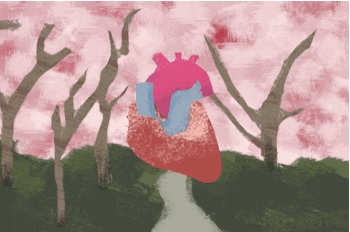
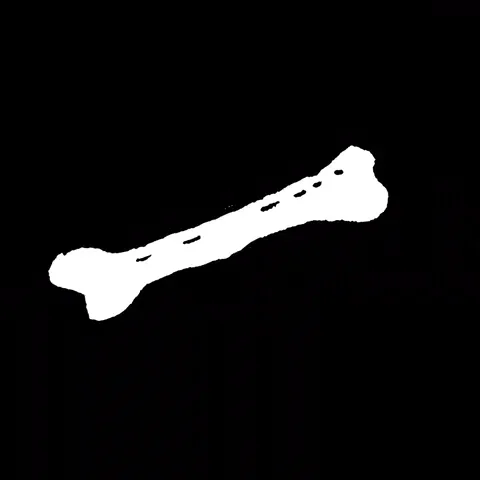
























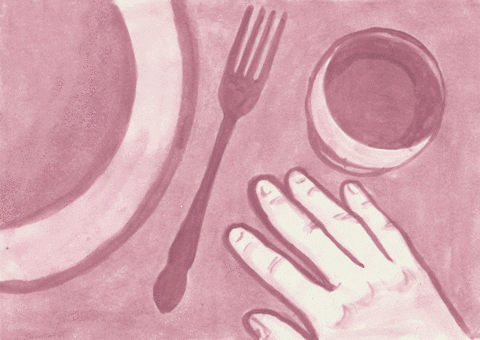





![Material History of the Closet [Soft Serve Ice Cream]](https://images.squarespace-cdn.com/content/v1/5d122e0d694a030001ef945a/1667071979042-L2S5FHV8SFR3TTJOBMK2/memoir+2.gif)


